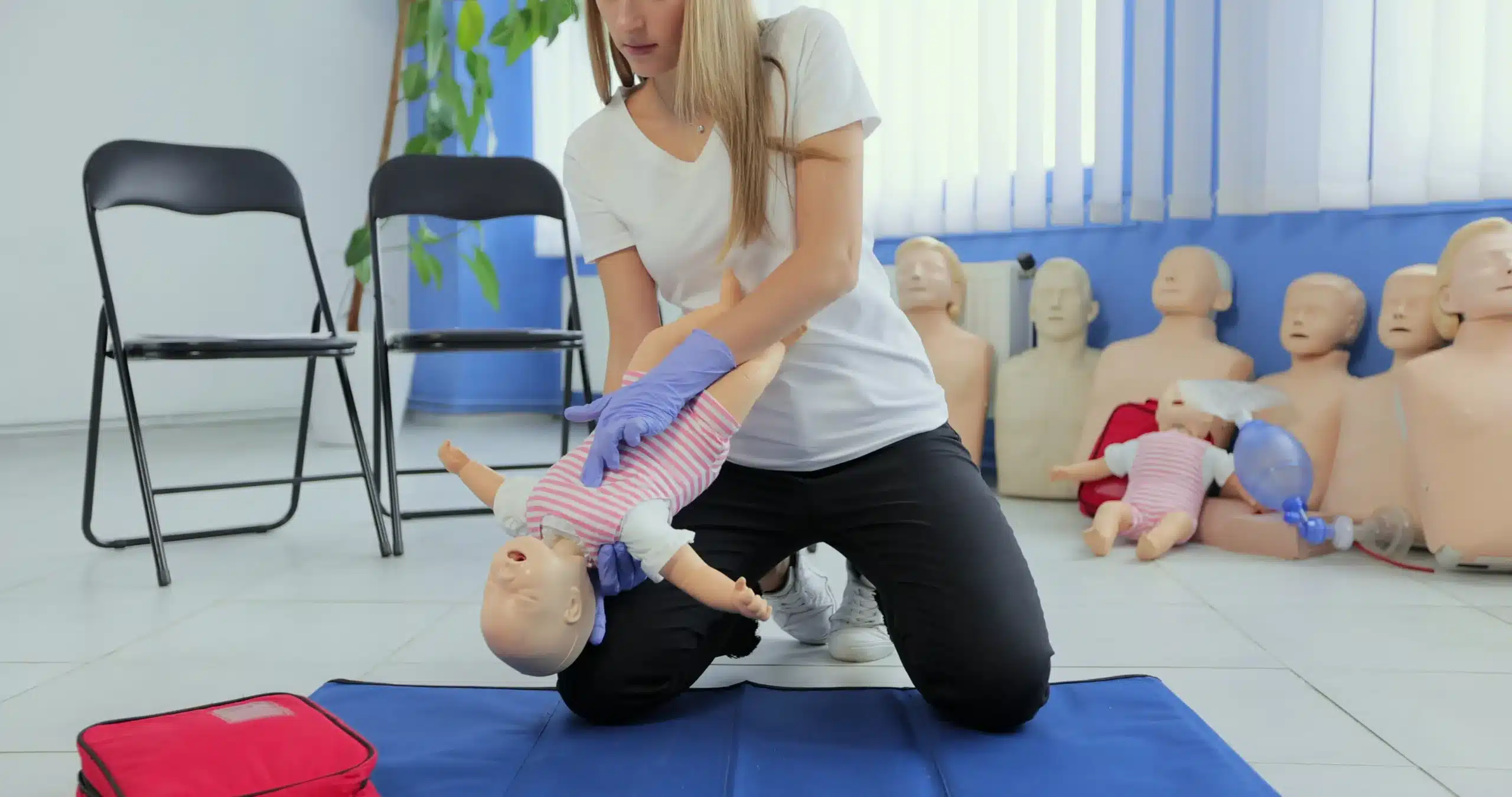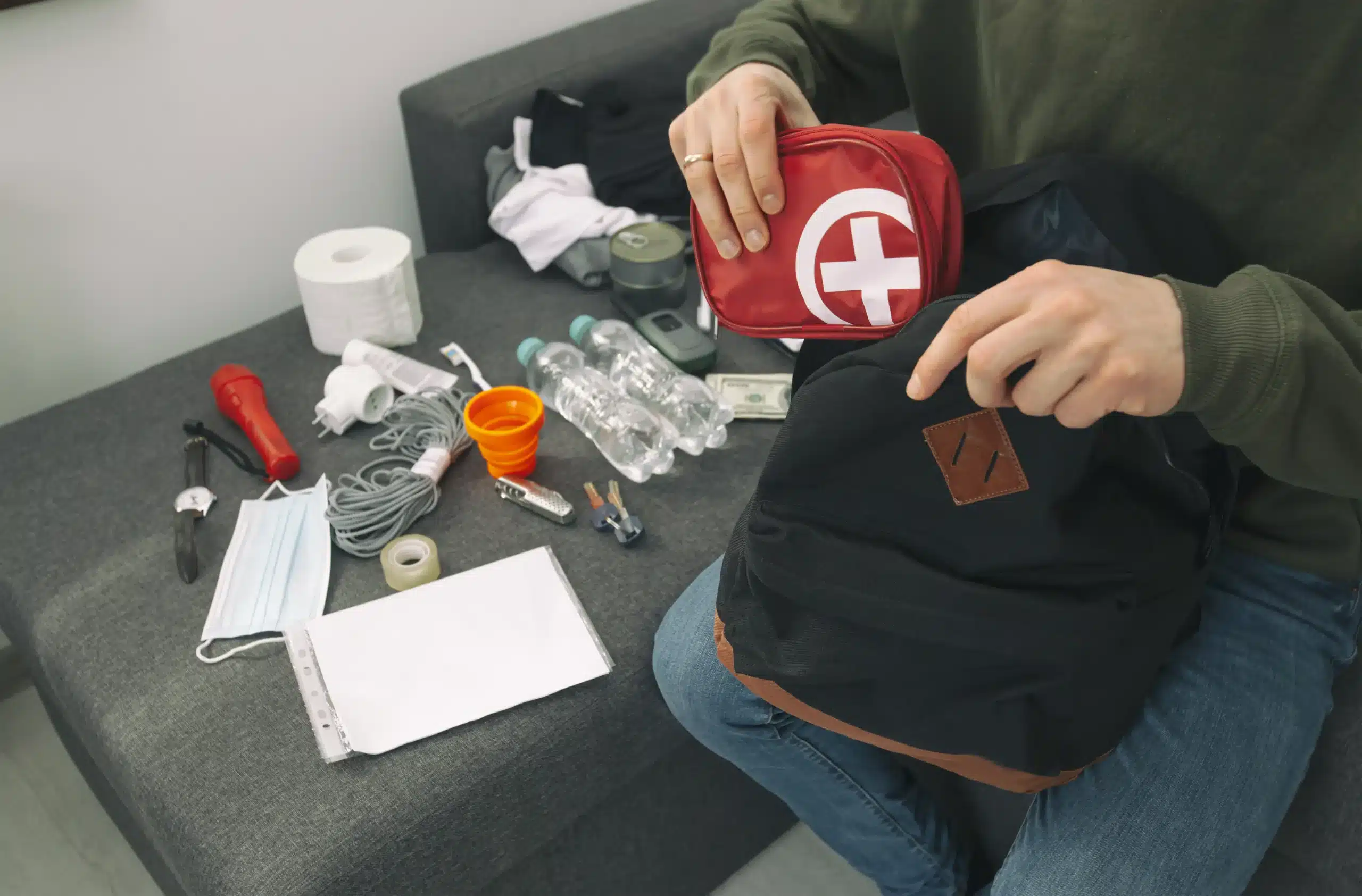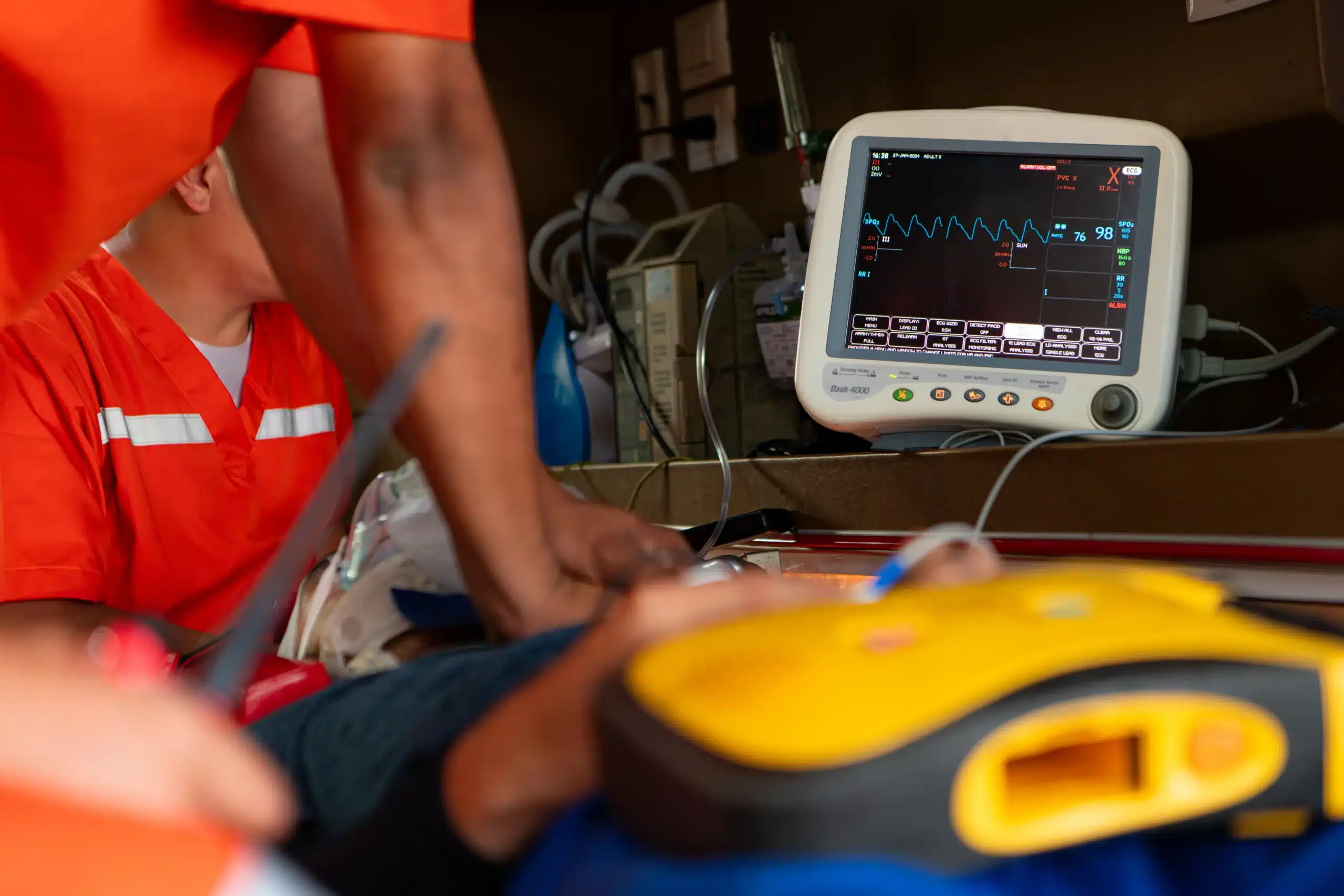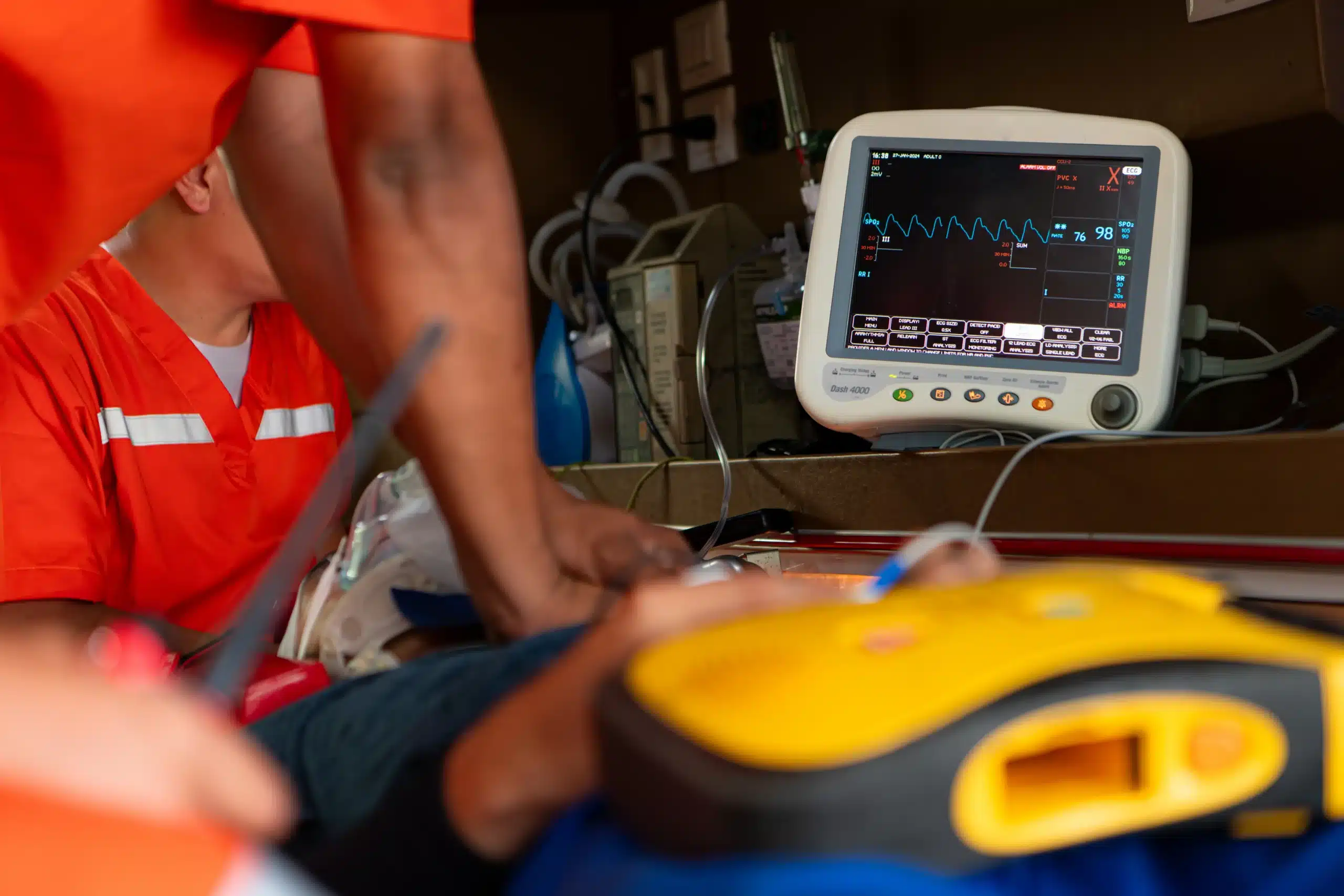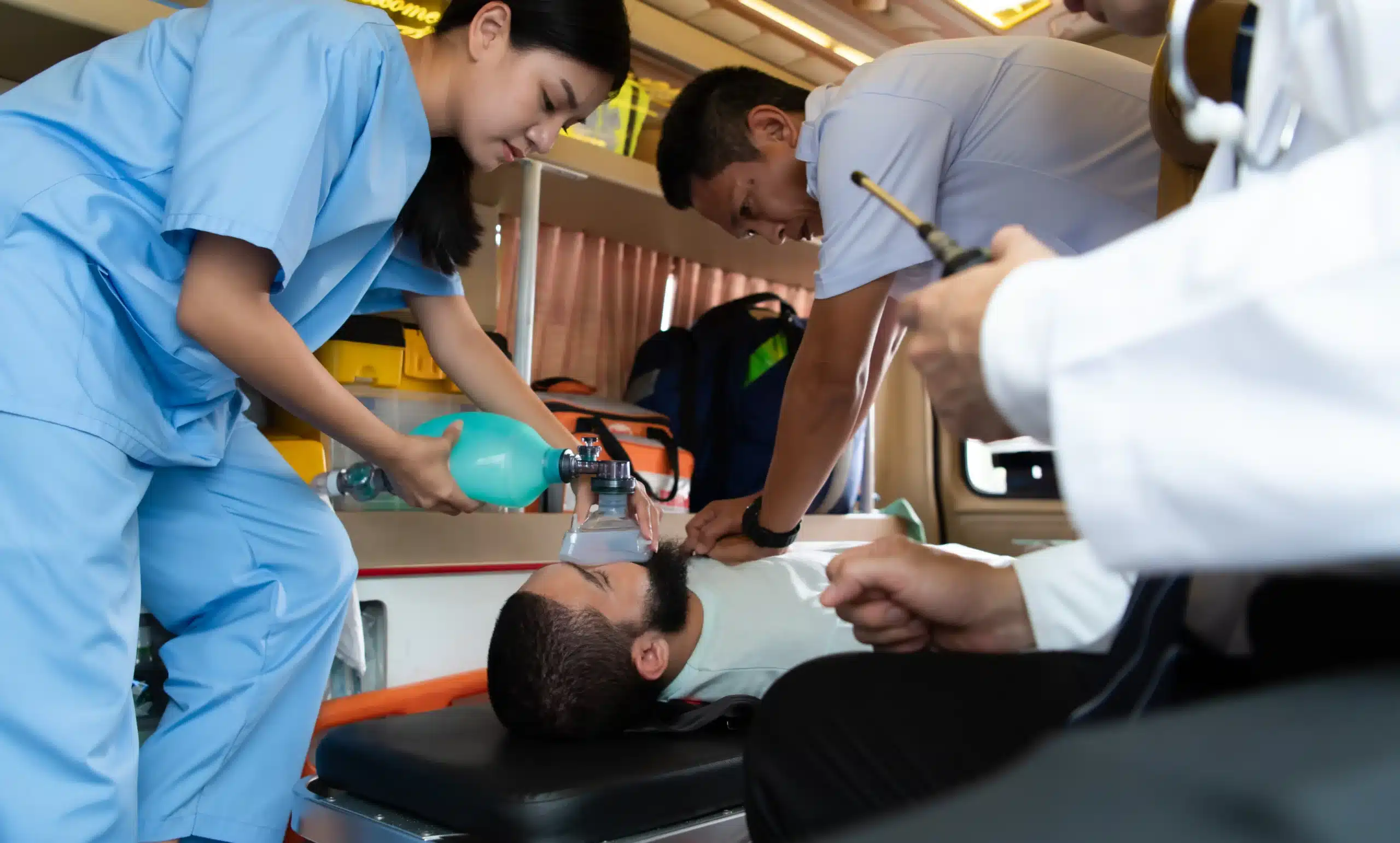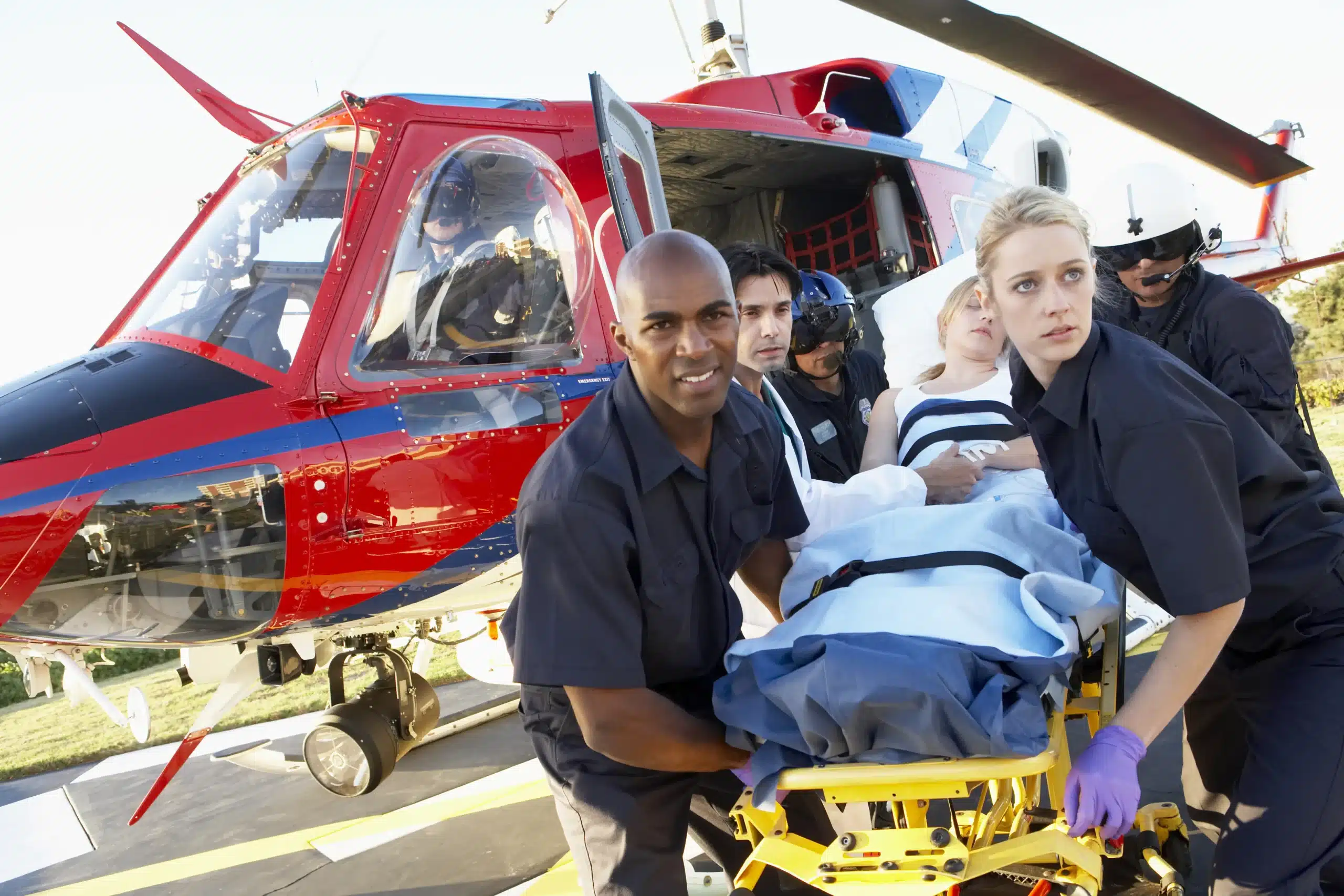Tired of cramming for biennial CPR recertification? RQI in Rocklin offers a refreshing alternative. This dynamic program, designed for healthcare professionals, emphasizes consistent practice and real-time feedback to build and maintain high-quality CPR skills. With shorter, more frequent sessions, RQI fits seamlessly into even the busiest schedules. If you’re a healthcare provider in Rocklin, Roseville, or Sacramento seeking a more engaging and effective way to stay certified, this article is for you. We’ll delve into the details of RQI, its benefits, and how it can empower you to provide the best possible patient care.
Key Takeaways
- RQI provides flexible CPR training designed for busy healthcare professionals. The blended learning format combines online modules with short, regular hands-on practice, making it easier to fit training into your schedule.
- Regular practice and personalized feedback are central to RQI’s effectiveness. The program’s emphasis on high-frequency training and real-time feedback helps build and maintain crucial CPR skills.
- Rocklin CPR Classes offers convenient access to RQI certification in the Rocklin area. They provide a range of AHA-certified courses, competitive pricing, and group discounts, making high-quality CPR training accessible.
What is RQI? How Does it Differ from Traditional CPR?
The Resuscitation Quality Improvement (RQI) program, developed by the American Heart Association, offers a new approach to CPR training. It focuses on mastering high-quality CPR skills through regular, short training sessions. This innovative program helps healthcare professionals in Rocklin, Roseville, and Sacramento maintain their skills at the highest standard.
CPR Training: Then and Now
Traditional CPR certification typically involves a longer class held every two years. RQI takes a different approach. This subscription-based training program provides the same cognitive and skills modules but delivers them quarterly. This ensures resuscitation skills remain sharp and participants stay up-to-date with the latest guidelines. RQI’s flexible format of short, frequent sessions makes it easier to fit training into busy schedules.
RQI’s Key Features
RQI uses innovative simulation stations and sophisticated software to enhance the learning process. These RQI simulation stations provide personalized coaching and real-time feedback, maximizing the value of each training session. The program incorporates three key training components: cognitive learning, hands-on psychomotor skills practice, and simulated patient cases. This blended learning approach, with its emphasis on low-dose, high-frequency training and performance feedback, helps participants learn and retain high-quality CPR skills quickly and effectively.
RQI in Rocklin: What Are the Benefits?
RQI CPR training offers several advantages, especially for busy professionals. Let’s explore some key benefits:
Convenient and Flexible Training
Traditional CPR classes often require carving out large chunks of time, which can be tough to manage. RQI offers a more flexible approach with shorter, more frequent sessions. This blended learning style combines online learning with brief hands-on practice, making it much easier to fit CPR training into your schedule. You can learn at your own pace and maintain your skills without disrupting your workflow. This approach makes it easier to stay up-to-date with the latest American Heart Association guidelines.
Get Certified Quickly
Time is precious, and RQI respects that. The program is designed for efficiency, allowing you to get certified quickly. You’ll complete an online course, followed by a skills test, and can receive your certification the same day. This streamlined process is perfect for those who need certification promptly or prefer a fast-paced learning environment.
Cutting-Edge Training Technology
RQI uses advanced technology to enhance the learning experience. Simulation stations provide real-time feedback and coaching, helping you develop high-quality CPR skills quickly. This technology ensures you get the most out of your training time by focusing on personalized instruction and skill development. For more insights into the technology used in RQI training, explore the resources available at SureFire CPR.
Retain Skills, Improve Continuously
One of the biggest challenges with traditional CPR training is skill retention. RQI addresses this with its focus on regular, short training sessions. This approach reinforces your skills and helps you maintain a high level of proficiency over time. Studies, like this one published in the Joint Commission Journal30371-X/fulltext), have shown the effectiveness of low-dose, high-frequency training for maintaining CPR skills. With RQI, you’ll build a strong foundation and continuously improve your life-saving abilities. For more information on how RQI helps retain skills, check out this helpful guide on RQI certification.
Experience RQI Training
RQI training blends online learning with hands-on practice, creating a flexible and efficient way to learn high-quality CPR. Here’s what you can expect:
Learn Online
Start your RQI journey online. The online portion lets you learn at your own speed, fitting easily into your schedule. You’ll cover essential concepts and procedures, preparing you for the hands-on skills session. This online component offers a fast, convenient way to begin your certification process.
Practice Hands-on with Smart Mannequins
RQI uses advanced simulation stations and smart mannequins to enhance your learning. These mannequins provide real-time feedback, allowing you to refine your technique and build confidence. The simulation stations create realistic scenarios, so you can practice your skills in a safe and controlled environment.
Get Real-Time Feedback, Track Your Progress
One of the most valuable aspects of RQI is the immediate feedback. As you practice, the system provides real-time, auditory feedback, guiding you toward proper CPR techniques. This instant feedback helps you learn quickly and effectively, mastering the skills necessary for high-quality CPR. You can also track your progress, identifying areas for improvement and building on your strengths.
Quarterly Skill Checks
RQI emphasizes ongoing practice to maintain proficiency. Quarterly skill checks ensure that your skills stay sharp and up-to-date. These regular refreshers reinforce your training and help you deliver the best possible care in an emergency.
Find RQI Certification in Rocklin
Explore Course Options
The American Heart Association RQI (Resuscitation Quality Improvement) program is the most popular, modern, and efficient way for medical and healthcare professionals in Rocklin to get their official American Heart Association BLS, ACLS, and PALS certification cards. RQI uses a blended learning approach, combining online learning with hands-on practice and regular skills checks. This flexible system lets you learn at your own pace and refresh your skills regularly. You can find more information on the RQI courses offered by Rocklin CPR Classes.
Locate Local Training Centers
Rocklin CPR Classes
Rocklin CPR Classes offers various American Heart Association courses, including BLS, ACLS, and PALS RQI training. They serve Rocklin, Roseville, and Sacramento, making them a convenient option for those in the surrounding areas. Explore their course schedule and register for a class that fits your needs. For larger groups, they also offer discounted rates. Reach out through their contact page to learn more.
Safety Training Seminars
Safety Training Seminars provides American Heart Association CPR, BLS, ACLS, and PALS courses in Rocklin, CA. You can find more information about their offerings and schedule on the Bay Area CPR website.
Other Certified Training Providers
Several other reputable providers offer RQI training in the greater Sacramento area. These include Sacramento CPR Classes, Davis CPR Classes, and The Resuscitation Coach, giving you several options to choose from. You can find more information on these providers and their RQI programs through a quick online search. The RQI guide by Rocklin CPR Classes may also offer additional resources for the Sacramento area.
How Much Does RQI Cost in Rocklin?
When considering CPR training, understanding the cost is essential. RQI, with its flexible and convenient approach, often presents a different pricing model than traditional CPR courses. Let’s break down what you can expect.
Understand Pricing
RQI training typically involves a subscription model rather than a one-time fee. This covers your access to online learning materials, skills practice sessions, and the ongoing monitoring and support needed to maintain your certification. Think of it as a continuous learning experience designed to keep your skills sharp. For specific pricing details on RQI programs in Rocklin, contact Rocklin CPR Classes directly. They’re known for their competitive pricing and low-price guarantee, ensuring excellent value. This commitment to accessible, high-quality training makes them a great resource for RQI certification in Rocklin, Roseville, and Sacramento.
Get Group Discounts
If you’re training with a group—colleagues or a community organization—inquire about group discounts. Many training centers, including Rocklin CPR Classes, offer reduced rates for group registrations. This can be a smart option for businesses certifying employees or for groups of friends and family members learning together.
Compare RQI’s Value to Traditional CPR
While traditional CPR certification often involves a one-time cost, remember that it requires renewal every two years. RQI’s subscription model provides ongoing training and assessment, ensuring your skills stay current. This consistent reinforcement builds confidence and competence for real-life emergencies. Consider this long-term value when comparing RQI to traditional CPR training. RQI’s quarterly skill checks, powered by advanced simulation technology, offer a distinct advantage in maintaining proficiency. Learn more about the differences between RQI and traditional BLS training from resources like SureFire CPR to make an informed decision.
Keep Your RQI Certification Current
Ongoing Learning: What to Expect
RQI certification focuses on mastering high-quality CPR skills through short, regular training sessions. This approach makes it easier to retain information and maintain proficiency. You’ll learn online and complete a skills test, often achieving same-day certification. The program emphasizes flexible training that adapts to your schedule, using a blended learning approach to keep you up-to-date with the latest guidelines. This ongoing training ensures you’re always prepared to respond effectively in an emergency. RQI uses short, frequent sessions to reinforce your skills and knowledge, making it a sustainable way to stay current with your training.
How to Recertify
Recertification with RQI involves quarterly training sessions designed to maintain your high-quality CPR skills. These sessions combine online learning with hands-on skills checks at simulation stations. You’ll verify your competency at these stations and complete quarterly Cognitive Assessment Activities to keep your certification current. This blended-learning curriculum integrates online learning with practical application. This regular reinforcement ensures you remain proficient and confident in your CPR abilities.
RQI Training in Rocklin: Your Questions Answered
We understand you might have some questions about RQI training. Here are answers to some common concerns:
Is RQI Training Physically Demanding?
CPR involves chest compressions and other physical maneuvers. While RQI training sessions are shorter and more frequent than traditional CPR courses, the physical demands of performing CPR remain the same. If you have any physical limitations, discuss them with your instructor. They can offer modifications or guidance to help you successfully complete the training. Don’t hesitate to reschedule if needed to ensure you’re physically prepared.
Does RQI Prepare You for Real-Life Emergencies?
Absolutely. RQI focuses on mastering high-quality CPR skills through regular, short training sessions. This approach reinforces the critical skills needed to respond effectively in real-life emergencies. RQI courses, offered through the American Heart Association’s Resuscitation Quality Improvement (RQI) program, provide comprehensive CPR training and are a modern and efficient way for healthcare professionals to maintain their BLS, ACLS, and PALS certifications. You’ll learn everything you need with the online course, skills test, and same-day certification process. Learn more about our AHA-certified courses.
Is My RQI Certification Valid and Recognized?
Yes, your RQI certification is valid and widely recognized. AHA certification is accepted across many industries, giving you the credentials you need for your career or personal goals. The RQI eCredential verifies your competency in high-quality CPR skills, demonstrating your commitment to maintaining these life-saving skills through ongoing training. This digital credential assures employers and others that you’ve met the rigorous standards set by the RQI program.
Is RQI the Right Choice for You?
Deciding on the right CPR training can feel overwhelming. RQI’s innovative approach offers some compelling advantages, but it’s not a one-size-fits-all solution. Let’s break down who benefits most from RQI training and what you should consider before signing up.
Who Benefits from RQI?
RQI is designed specifically for healthcare professionals like doctors, nurses, paramedics, and other licensed providers. If you work in a hospital, clinic, or any setting where high-quality CPR skills are essential, RQI can be a game-changer. The program’s focus on consistent practice and real-time feedback helps build and maintain the advanced skills needed in critical situations. This makes RQI particularly beneficial for those whose certifications require renewal through the American Heart Association.
Choosing RQI: What to Consider
One of the biggest draws of RQI is its flexibility. Unlike traditional CPR classes that require blocking out a large chunk of time, RQI uses short, frequent sessions. This blended learning approach combines online learning with hands-on practice, making it easier to fit training into a busy schedule. However, if you prefer a more traditional classroom setting or learn best in a group environment, a conventional CPR course might be a better fit. Consider your learning style and how much time you can realistically dedicate to training. More information on RQI’s training approach can be found in this guide.
Addressing Concerns and Myths
Some healthcare providers worry that shorter training sessions mean less comprehensive learning. This isn’t the case with RQI. The program emphasizes high-quality CPR skills through regular practice and real-time feedback. This consistent reinforcement helps build muscle memory and confidence, leading to better performance in real-world emergencies. Another common concern is cost. While RQI might seem more expensive upfront, consider the long-term value. The flexible format reduces time away from work, and the focus on skills retention can lead to greater confidence and competence. If you’re looking for RQI training in Rocklin, check out the options available at Rocklin CPR Classes. They offer a variety of courses and can help you determine if RQI is the right fit for your needs.
Related Articles
- RQI Sacramento: Your Guide to CPR Certification – Rocklin CPR Classes
- CPR Training in Roseville: Your Complete Guide – Rocklin CPR Classes
- Busting CPR Myths and Saving Lives
- The Science Behind Effective CPR: A Comprehensive Guide
- American Heart Association Training in Rocklin, CA – Rocklin CPR Classes
Frequently Asked Questions
What exactly is RQI and why is it different from traditional CPR training?
RQI, or Resuscitation Quality Improvement, is a program created by the American Heart Association that changes how healthcare professionals maintain their CPR skills. Instead of one lengthy class every two years, RQI uses shorter, more frequent training sessions, usually quarterly, combining online learning with hands-on practice. This helps keep your skills fresh and ensures you’re always up-to-date with the latest guidelines.
How does the RQI training process work?
RQI training blends online learning with hands-on practice. You’ll start with online modules, then move to hands-on sessions using high-tech mannequins and simulation stations. These stations provide real-time feedback, helping you perfect your technique. You’ll also have regular skill checks to ensure you maintain your proficiency.
Is RQI certification accepted everywhere?
Yes, RQI certification, provided through the American Heart Association, is widely accepted and respected. It’s a valid credential that demonstrates your commitment to maintaining high-quality CPR skills. The digital eCredential provides easy verification of your qualifications.
How much does RQI training cost, and how does it compare to traditional CPR courses?
RQI typically uses a subscription model, covering your online access, skills sessions, and ongoing support. While the initial cost might seem higher than traditional CPR, remember that traditional courses require renewal every two years. RQI’s ongoing training and assessment provide continuous value and ensure your skills remain current. Contact Rocklin CPR Classes directly for specific pricing. They often offer competitive rates and group discounts.
Who is RQI best suited for, and what should I consider before choosing this training?
RQI is designed for healthcare professionals who need to maintain top-notch CPR skills. If you work in a fast-paced medical environment, the flexible, frequent training offered by RQI can be a great fit. However, consider your learning style and schedule. If you prefer a traditional classroom setting or have limited flexibility, a conventional CPR course might be a better choice.
